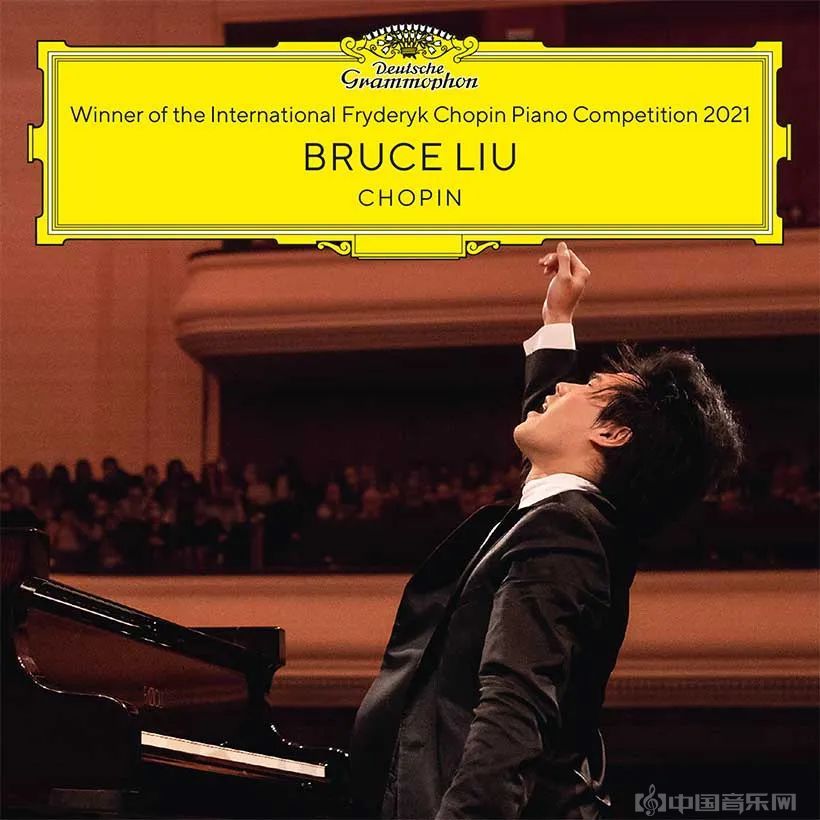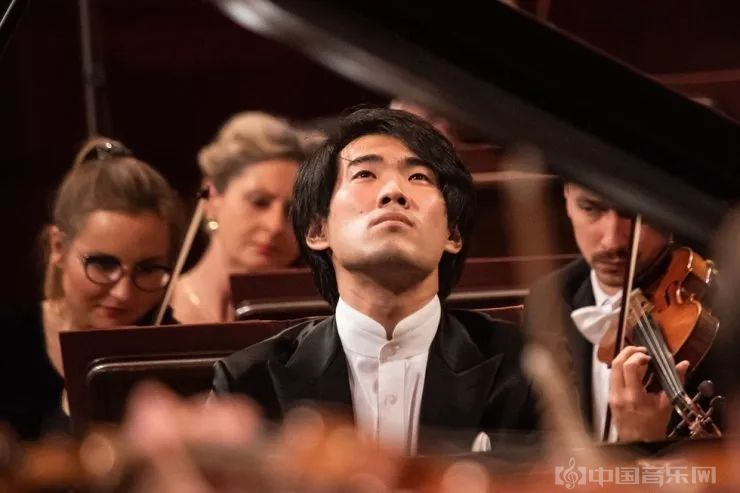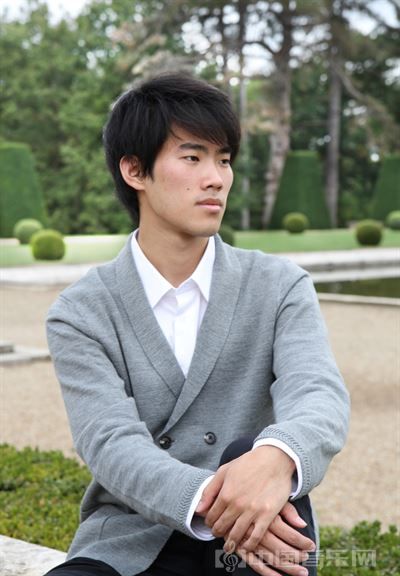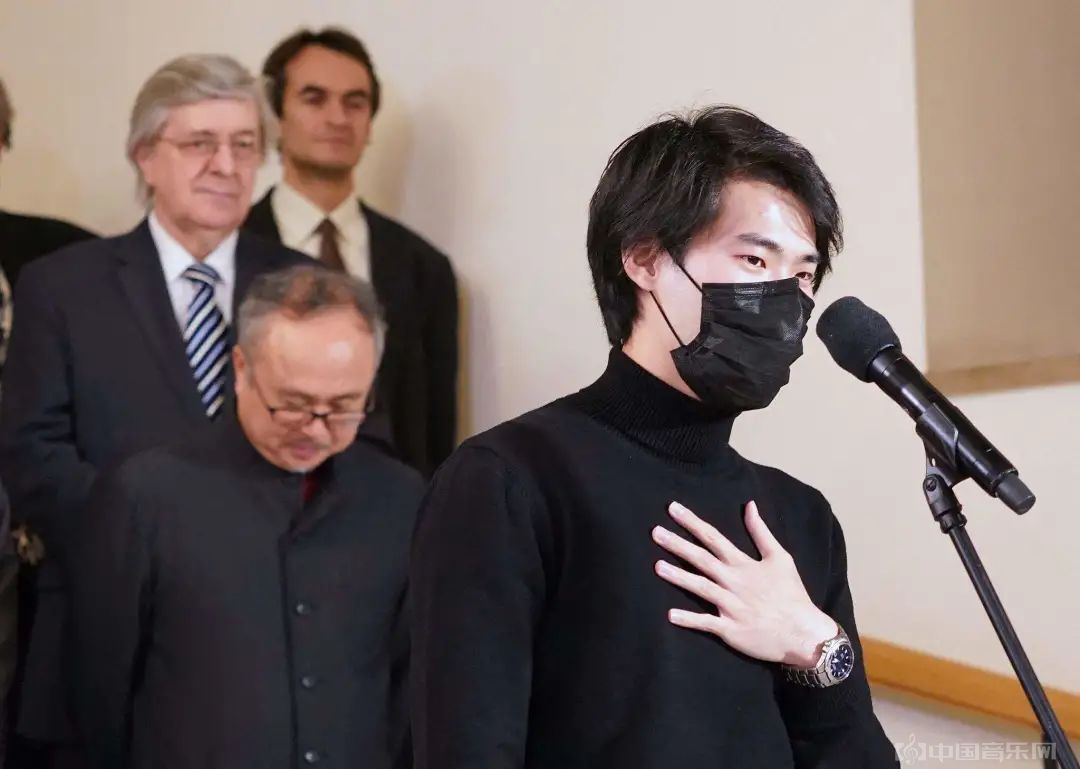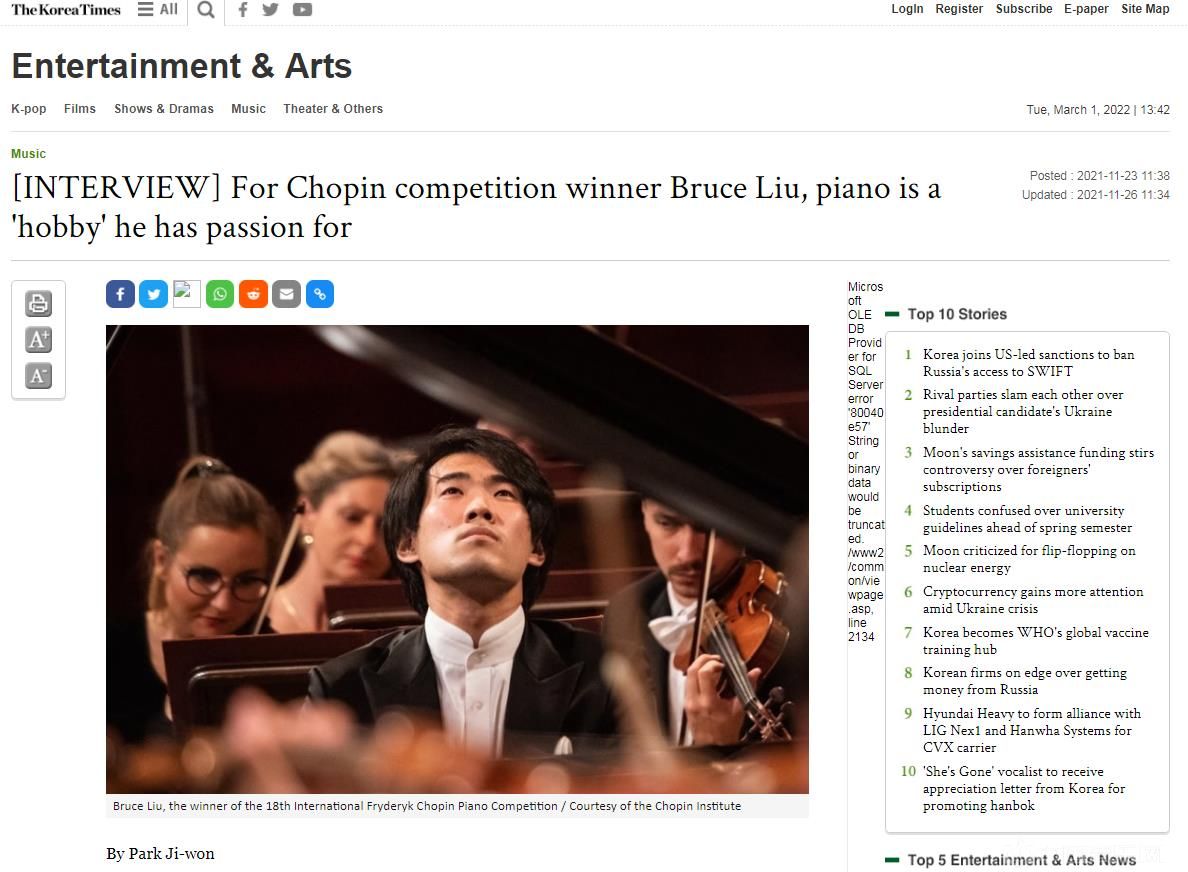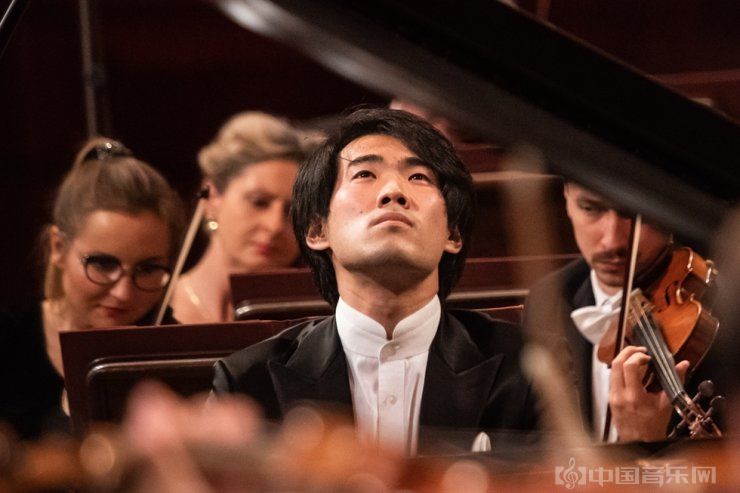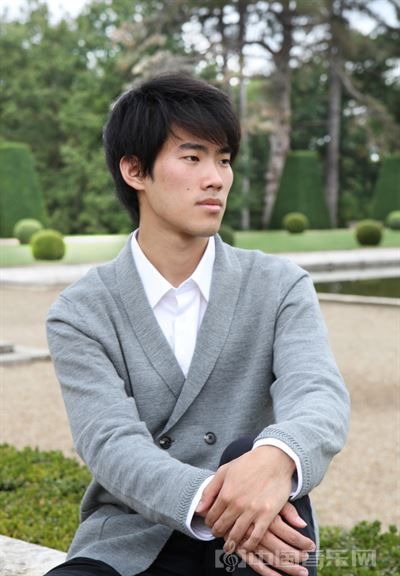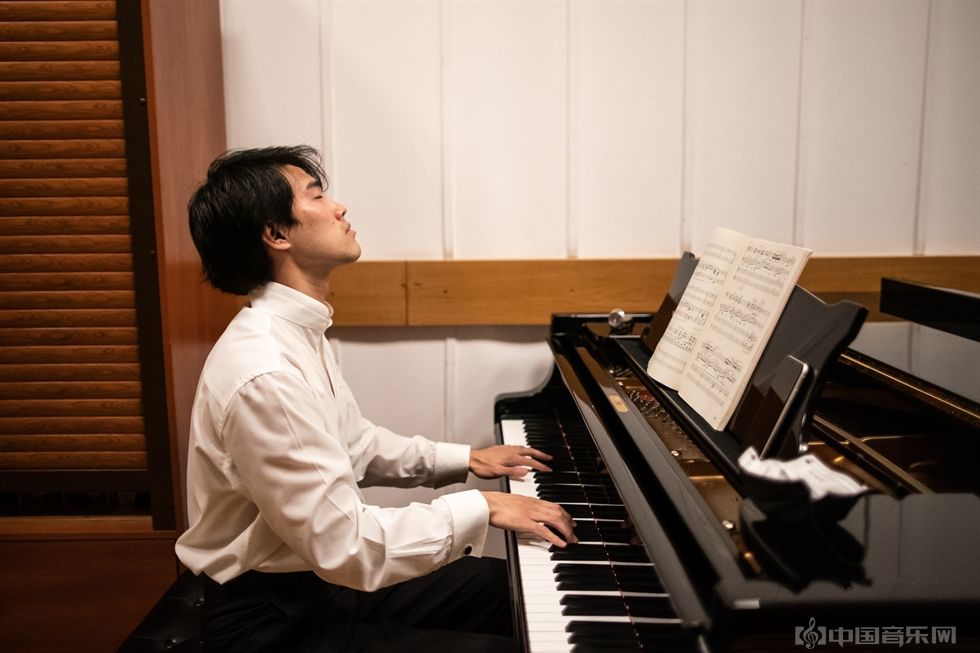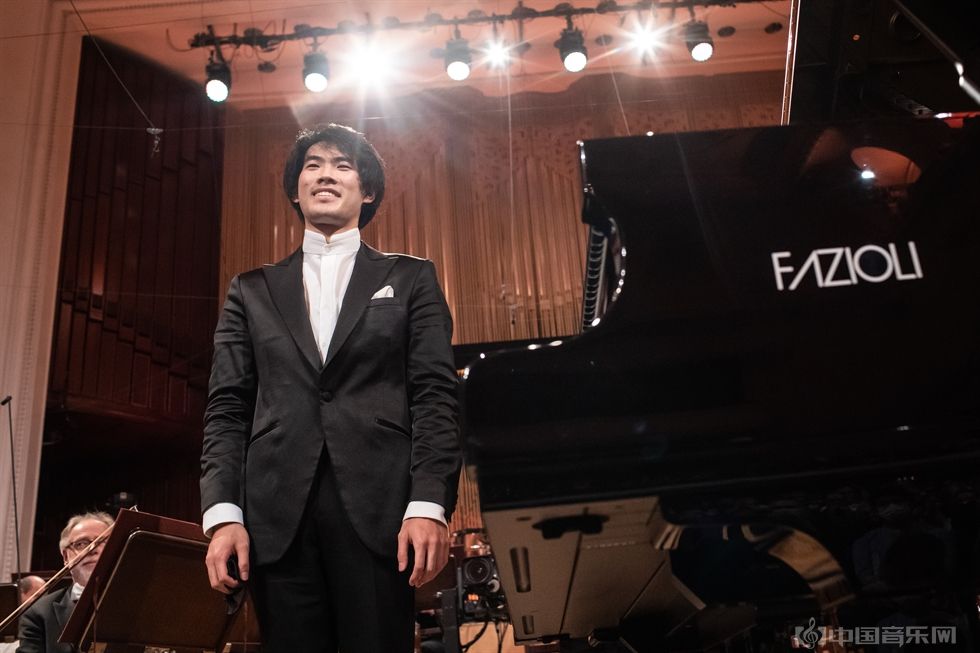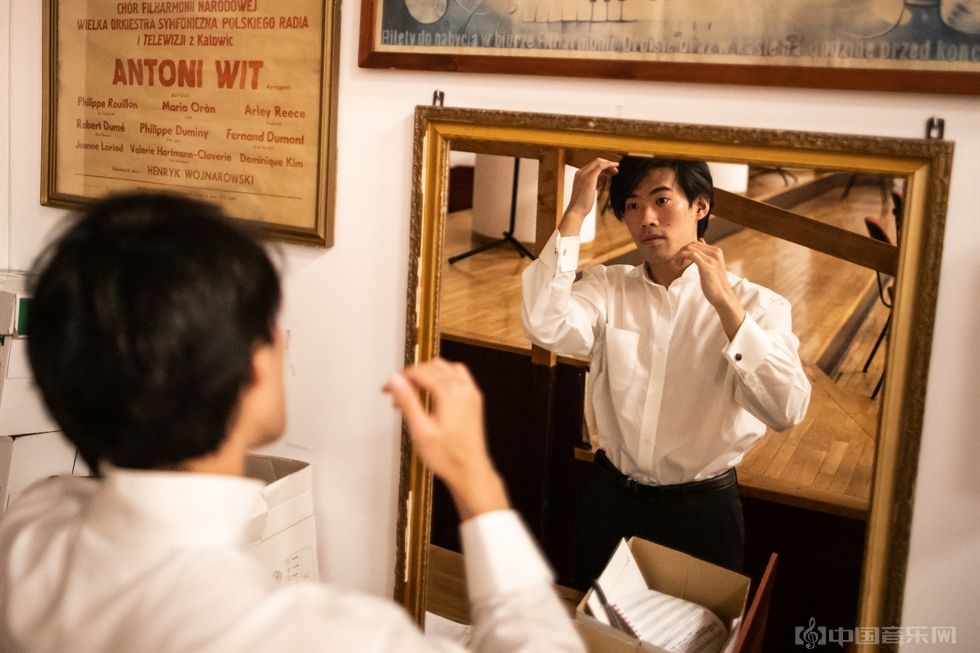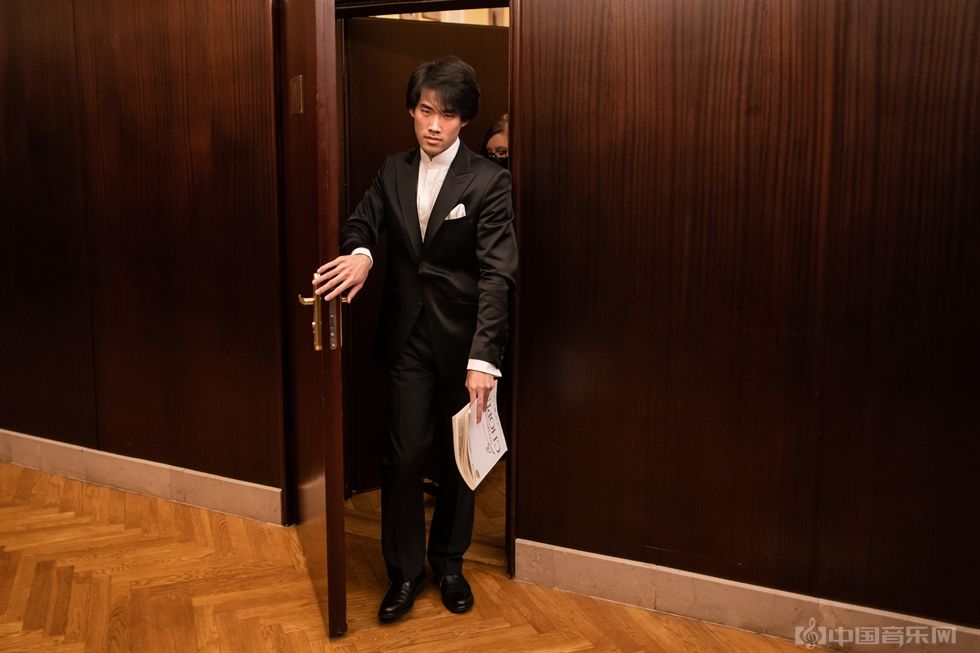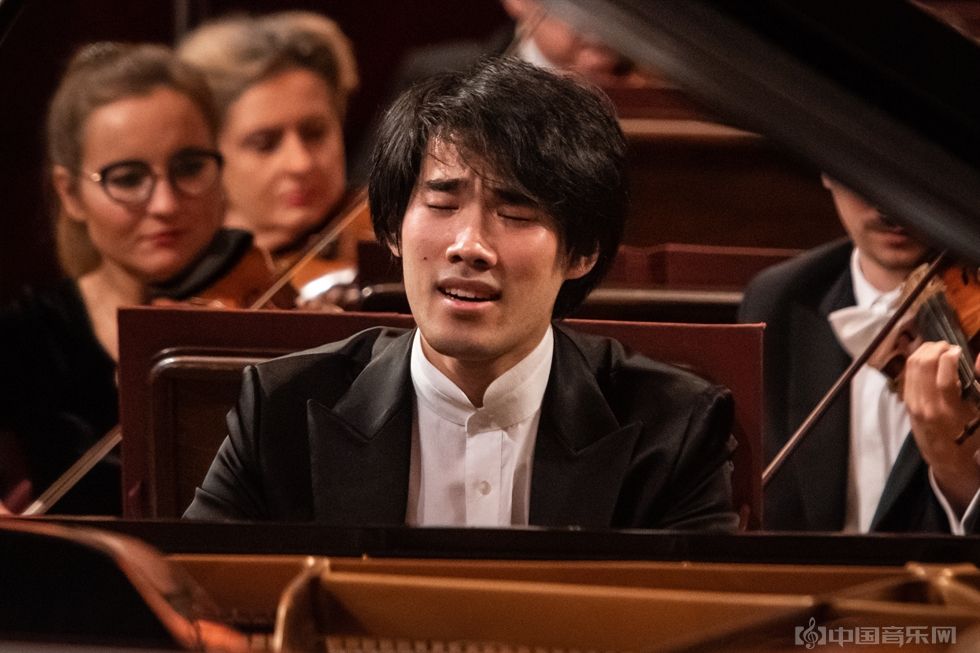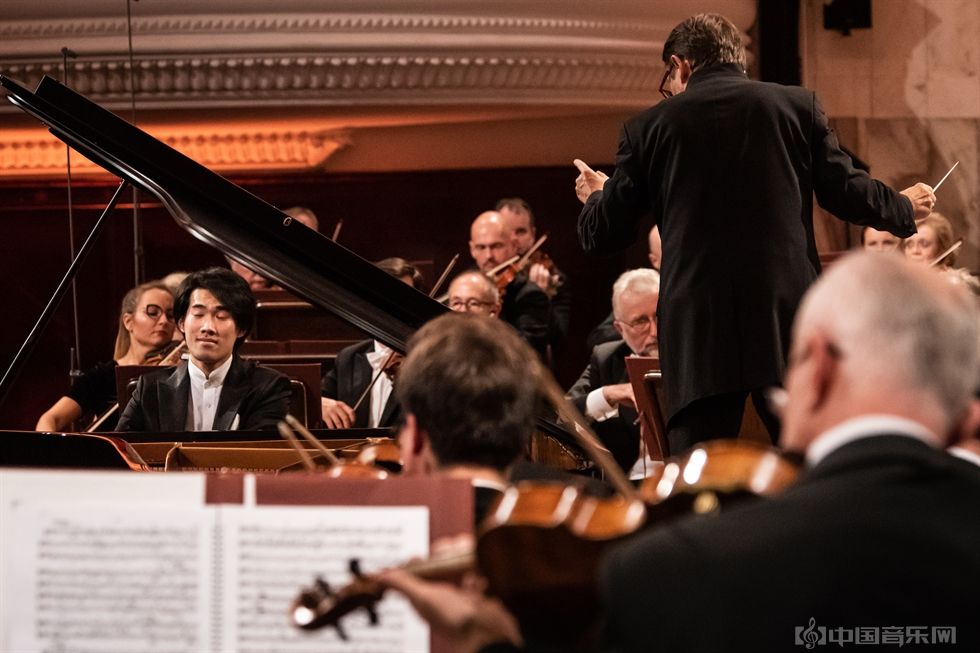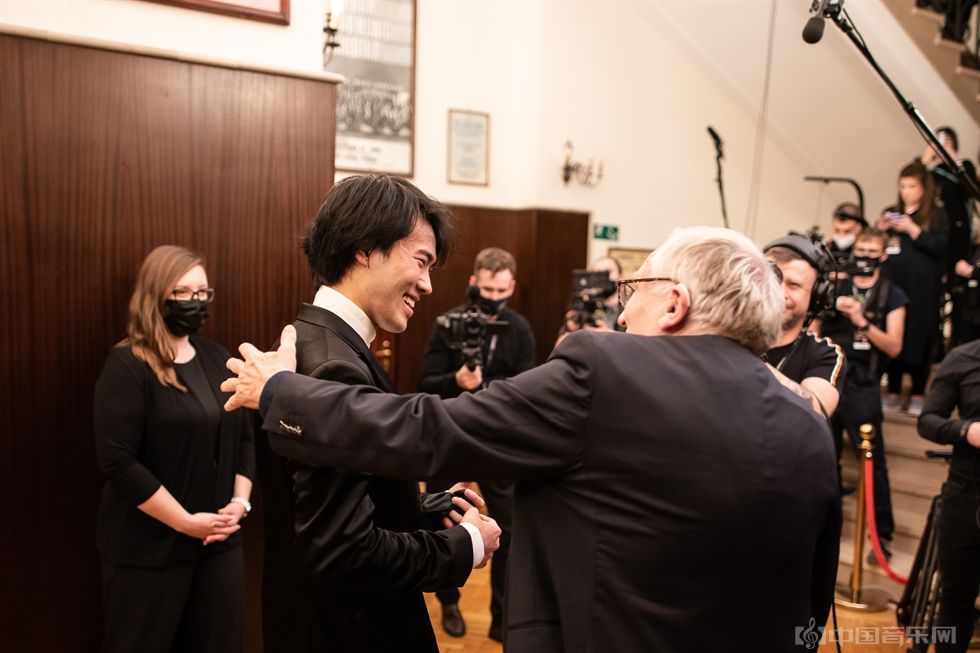今天是肖邦212周年诞辰,有关肖邦本人的故事和音乐,我们在往期分享过很多推送。
今天为大家分享一期来自韩国首尔艺术中心于2021年底对第18届国际肖邦钢琴大赛冠军刘晓禹的采访,让我们进一步走近这位称自己“不太会弹钢琴”的人。(文末查看源头)
第18届国际肖邦钢琴大赛上,全世界的古典音乐迷们都期待着未来很长一段时间内将对古典音乐界产生影响的那位举世瞩目的钢琴家的诞生。
众所周知,出生于巴黎,在蒙特利尔长大的加拿大华人刘晓禹获得了这届大赛的冠军。这位在多元文化和爱好中成长起来的钢琴家是一个极具包容性和开放性的人,环境对他形成个人的独创性并在比赛中获胜起到了不容忽视的作用。
刘晓禹谦虚地说:“我是一个不太会弹钢琴的人。”
这似乎颠覆了一般人认为比赛获胜者只能成为专职钢琴家的想法。
Q:由于新冠疫情,“肖赛”推迟了1年,在最后一轮比赛结束后,你的感觉如何?在被宣布为获胜者后,你有何感想?
A:我没想到会这样。我根本没想过结果。即使从第一轮到第三轮,我也只是在宣布之后的第二天早上才听到结果,因为结果总是宣布得很晚。第二天醒来我才知道结果。我很冷静。我不觉得自己在竞争。决赛结束后,在接下来的几天里,我又要在晚会上演奏“E小调协奏曲”,对此我其实是不太高兴的。我想在比赛后休息一下。这真的是一场马拉松啊。
Q:关于比赛,你印象最深的是什么?
A:我想我还需要时间来消化到底发生了什么。现在我感觉有点混乱,要去弄清楚并处理好正在发生的事情——所有的音乐会。我不知道为什么我被记住了,其实在结果公布之前,我还在后台跟其他选手和工作人员表演魔术。
Q:在你决定参加比赛之前,你为什么不多弹肖邦的曲子?
A:因为比赛被推迟了,为了保持新鲜感和灵感,我决定演奏别的东西,而不只是肖邦。肖邦演奏太多,你会感到厌烦的。我演奏了一些拉莫和贝多芬的曲子。我还学到了一些原本我不会学
Q:你是“肖赛”第一位亚洲冠军邓泰山的学生,他教给你的东西中最突出的是什么?
A:当我开始跟他学的时候,我们练习了所有的作曲家,但不包括肖邦。两年前我们才开始准备比赛。因为现在我们都是肖邦的冠军,人们经常把我们和肖邦联系在一起。但是他真的是一个多才多艺的老师。所以我们研究俄罗斯音乐和法国音乐。我不想头上戴着肖邦主义的帽子。他对华沙非常熟悉,不仅是比赛,他还作为评审团成员去那里,他经常在那里举办音乐会。很高兴他能告诉我华沙的一些餐馆和不错的酒店。作为一名教师,我们之间的关系非常特别。在某种程度上,我们就像非常好的朋友和家人。我们不仅谈论音乐,还谈论日常生活中的问题,比如,“新开了一家超市”,“如何买到更便宜的机票”,这些都是非常温暖的话题。
Q:你有很多爱好。它们都有哪些?享受其他爱好的同时,你是
A:因为我不怎么练习。当我8岁开始弹钢琴的时候,我甚至还把钢琴当作一种爱好。我每天游泳,我喜欢赛车、下棋和
Q:你什么时候决定成为一名职业钢琴家的?
A:我想我从来没有决定过。我想把钢琴作为一种爱好保留下来。因为我不想让它变成例行公事。爱好是我们有激情和感兴趣的东西。我认识很多人,当他们成为钢琴家时,就
Q:你为比赛准备得最充分的是什么?
A:唯一一点是,我从来没有为一个作曲家准备过这么多曲目——这是最特别的。特别是在新冠疫情的影响下,去年7月的海选实际上是我一年半以来的第一次公开演出。当我坐在舞台上时,感觉甚至有点奇怪。为比赛做准备的最好方法是,当你练习的时候,把自己想象成在舞台上。这样的话,当你上台的时候,你就不会那么紧张了。所有的一切都是关于你将要面对什么的预先想象。
Q:作为音乐家,除了你的老师,你还崇拜谁?
A:我更欣赏过去的一些大师。因为从现在到50年前,钢琴演奏的品味发生了很大的变化。因为他们的生活方式,他们在某种程度上更接近作曲家真正想要的东西。今天,我们过于关注技术和完美。以前的音乐更注重音色、旋律和歌唱性。像科尔托特、萨姆森·弗朗索瓦、米开朗基利这样的人,我们再也听不到那样的表演了。
Q:你的父母是北京人,你出生在巴黎。你在加拿大蒙特利尔长大,是中国人的孩子。那种氛围或环境对你获胜有影响吗?
A:它是多种文化的混合。我去过很多地方。他们每个人都在某种程度上影响了我,因为最重要的是,这种差异的混合让我觉得自己很开放,很容易接受我们之间的差异。很简单:我记得有人说过,我们之间唯一的共同点其实就是存在差异。甚至对于演奏音乐——肖邦,贝多芬,德国音乐和俄罗斯音乐——实际上这种思维和逻辑让我更容易接受这一切,学习这些不同的东西。我认为这是伴随我成长的最大的收获。
Q:前肖邦大赛冠军赵成珍说:“为了不被认为是肖邦专家,故意不演奏肖邦作品。”你呢?你将来想演奏什么样的音乐?
A:我和他有同样的感觉,因为有太多的音乐有待发掘,而不是因为我讨厌肖邦。像我这样的人,在这么短的时间内演奏了10次E小调协奏曲。明年将演奏20至30次E小调。有很多我感兴趣的事情。我计划在短期内推出《唐璜变奏曲》,因为我太喜欢它们了。我其实想在独奏会上把唐璜的不同版本混在一起。还有法国音乐——我也会把它放在我的独奏节目里。也许明年,我会从拉赫玛尼诺夫开始,因为2023年是他诞辰150周年。有很多事情需要考虑。
Q:作为一个艺术家,你所说的“成为我自己”是什么意思?
A:当我们演奏一位作曲家的作品时,我们必然会将自己的个性融入其中。对于肖邦来说,你很容易会认为他很怀旧,很悲伤,他的音乐有那么多的痛苦,因为他不能回到自己的国家——诸如此类的事情。我对待肖邦的态度更像是一个快乐的人,一个永远乐观的人。我很喜欢社交,喜欢和朋友们在一起。这与我们对肖邦的看法正好相反。不知何故,我认为这并不完全正确,因为他也是一个非常复杂的人。他也有感情。他创造了沙龙文化。他喜欢模仿别人,而且总是乐在其中。这就是为什么有这么多舞蹈——华尔兹、波兰舞曲……所有这些都源自于此。当我们演奏他的音乐时,我们会反思自己的个性。什么是艺术?艺术是我们自己的一面镜子,我们在生活中所做和创造的一切都是艺术的一部分。我认为音乐,当我们演奏它的时候,它不能与我们自己分开。我认为最重要的是保持真诚,对自己保持真实。
-------以下为原文访谈--------
[INTERVIEW] For Chopin competition winner Bruce Liu, piano is a 'hobby' he has passion for
Bruce Liu, the winner of the 18th International Fryderyk Chopin Piano Competition / Courtesy of the Chopin Institute
By Park Ji-won
Classical music fans all over the world were excited to watch the 18th International Fryderyk Chopin Piano Competition held last month, expecting the emergence of a star pianist who could influence the classical music industry for some time to come. Korean fans had especially high expectations for the contest, as the winner of the last competition held six years ago was Korea's own Cho Seong-jin.
However, Lee Hyuk, a Korean finalist in the competition, failed to win a prize, as Canadian pianist Bruce Xiaoyu Liu won the top spot with unique and skilled performance.
The winner who is currently having an international "marathon-like" tour after the competition, will hold a concert with the Seoul Philharmonic Orchestra, led by associate conductor Wilson Ng, at the Seoul Arts Center (SAC), Nov. 27. He will be playing Chopin's Piano Concerto No. 1 in E minor, Op. 11; Berlioz's Le Carnaval Romain Overture and Shostakovich's Symphony No. 9 in E-flat major Op. 70. Tickets sold out early, and the SAC has since opened ticket sales for an online streaming video.
Ahead of the concert in Seoul, the Korean press were invited to ask Liu questions at a roundtable interview via Zoom, Thursday, about his competition win, his philosophy as a pianist, the concert with the Seoul Philharmonic and his future plans.
Bruce Liu, the winner of the 18th International Fryderyk Chopin Piano Competition / Courtesy of the Chopin Institute
Opening the interview by saying humbly, "I am someone who is not so good at piano," the thoughtful and talented artist seemed to reverse the normal thinking that the winner of the competition becomes only a full-time pianist. He said he wanted to play piano as a hobby, so that he could continue to be passionate about it and interested in it, while also remaining serious about it.
"I don't practice so much … I think I never decided to become a professional pianist. I want to keep the piano as a hobby. Because I don't want it to become like a routine. A hobby is something that we have a passion for and that we are interested at. I know a lot of people who, when they become a pianist, it's like they are doing like a job. Then they start to lose the inspiration and the interest for music, which is dangerous," the 24-year-old said.
"(But) I'm devoted to this hobby more than others ― that's for sure. Especially after the competition. I don't even have time to sleep and eat. I am constantly traveling. I have played the concerto like 10 times. But it is a fulfilling challenge with a lot of joy."
Bruce Liu has countless hobbies, including swimming, car racing, reading, watching movies, practicing magic tricks and playing go. Even before the announcement of the winner of the competition, which he didn't expect to win, he revealed that he performed some magic tricks backstage for other competitors and staff.
As a Chinese Canadian who was born in Paris and raised in Montreal, the mix of many different cultures and hobbies likely enabled him to grow up as an open-minded person accepting of differences, and helped him come up with his own personal kind of originality, which likely contributed to him winning. He said that his teacher, Dang Thai Son, the first Asian winner of the competition, is more like a family member, in that they share their life problems. He hopes to play Chopin's "Don Giovanni Variations" and Rachmaninoff in the near future. He is also looking forward to performing in Seoul, as unlike concerts in other countries, such as Israel and Japan, he has had several chances to rehearse so can express his artistic perspective better. He hopes to become an artist who is true to himself.
Below is an excerpt of the interview with Bruce Liu, which has been edited for clarity.
Bruce Liu, the winner of 18th International Fryderyk Chopin Piano Competition / Courtesy of the Chopin Institute
Q: As the Chopin competition was delayed for a year because of the COVID-19 pandemic, what was it like to perform after your final round? What came to your mind after being announced as the winner?
A: I was not expecting that. I didn't think about the results at all. Even from the first round to the third round, I heard the results only the morning of the next day, after the announcement, because they always announce so late. And I just went to sleep. I learned the results on the next day when I woke up. I was pretty chill. I didn't feel I was in a competition. After the final, in the next few days, I have to play in the gala the E minor concerto again, which was something I was not happy about. I wanted to rest after the competition. So it was a whole marathon.
Q: What do you remember most about the competition?
A: I think I still need time to digest what actually happened. Now it's quite a mess to figure out and do well with what is just happening ― all the concerts. I don't know why I was remembered that, but before the results announcement, I was doing some magic tricks backstage with some other competitors and staff.
Q: Before you decided to participate in the competition, why didn't you play Chopin much?
A: Before the competition, because it was postponed, in order to keep my freshness and inspiration on, I decided to play something else instead of Chopin. With too much Chopin, you will really get bored. I played some Rameau and Beethoven. I also learned some very weird pieces I would not have (otherwise) learned.
It's been like that from my childhood until now. I never thought about focusing on one specific composer. I was playing a bit of everything. It was good for my overall development. I think it's better to decide what you really like later, when you get much surer, when you really know who you are.
Q: As a student of Dang Thai Son, the first Asian winner of the competition, what stands out the most among what he taught you?
A: When I started with him, we did (practice) every composer, but not Chopin. I started to prepare for the competition with him only two years ago. Because now that we are both Chopin winners, people think about Chopin a lot for us. But he is a really versatile teacher. So we work on Russian music and French music. I don't want to have a Chopinist hat on my head. He knows Warsaw so well. Not only the competition… but he also goes there as a jury member, and he often give concerts there. It is good to know (he tells me) some restaurants and good hotels in Warsaw. It is always helpful. As a teacher, the relationship we have is quiet special. We are like very good friends and members of a family in a way. We don't talk only about music, but also about everyday life problems, like, 'There's a new supermarket,' 'How to get a cheaper air ticket,' which is very warming.
Bruce Liu, the winner of the 18th International Fryderyk Chopin Piano Competition / Courtesy of Chopin Institute
Q: You have a lot of hobbies. What are they and how do you play the piano while enjoying your other hobbies?
A: Because I don't practice so much. Even piano was a hobby for me when I started at 8. I swim every day and I like chess and movies. I like reading and I also play go.
Q: What kind of energy do you get from racing? Aren't you worried that you might hurt your hand?
A: No. I used to like playing tennis as well. But that is more harmful for the arms. Racing isn't actually as dangerous as you think. (Racing) is just a hobby. I don't try to really make a connection with piano. The fact of doing something else already gives our brains a break. I think that is good. I mean, that's important for me. I think if you really want to find some connection, I think maybe (you need) some concentration. I want to win more in racing than in piano.
Q: When did you decide to become a professional pianist?
A: I think I never decided to. I want to keep the piano as a hobby. Because I don't want it to become like a routine. A hobby is something that we have a passion for and that we are interested in. I know a lot of people who, when they become a pianist, it's like they are doing a job. They lose the inspiration and the interest for music, which is dangerous. Of course, I'm devoted to this hobby more than others ― that's for sure. Especially after the competition. I don't even have time to sleep and eat. I am constantly traveling. I have played the concerto like 10 times. But it is a fulfilling challenge with a lot of joy.
Q: What did you prepare the most for the competition?
A: The only thing is that I had never prepared such a huge repertoire by only one composer ― that's the most special thing. Especially with COVID-19, the audition we had in July was actually my first public performance for a year and a half. It was even a bit weird when I was sitting on stage. The best way to prepare for the competition is to actually think that you're on stage when you are practicing. So that actually, when you get on stage, you are not so nervous anymore. It is all about the imagination to pre-think what you are going to face.
Q: Who do you admire as a musician apart from your teacher?
A: I admire some old masters from the past more. Because piano playing taste has changed so much between now and 50 years ago. Somehow they are closer to what actually these composers wanted because of the way they lived. Today, we focus too much on technique and perfection. The old ones…they focused more on tone, melody and singing ― so special… people like Cortot and Samson Francois, Michelangeli, because we don't hear that kind of performance anymore. It is interesting: Michelangeli and I share a common hobby, which is racing.
Bruce Liu, the winner of 18th International Fryderyk Chopin Piano Competition / Courtesy of the Chopin Institute
Bruce Liu, the winner of 18th International Fryderyk Chopin Piano Competition / Courtesy of the Chopin Institute
Q: Your parents are from Beijing and you were born in Paris. You were raised in Montreal, Canada, and have an Asian (Chinese) upbringing. Did that atmosphere or environment affect you in becoming the winner?
A: It was a mix of so many cultures. I was in so many places. Each of them influenced me in a way because the most important thing is that this mixture of differences gives me the conception of being very open-minded and easy about accepting the differences between us. It is simple: I remember somebody said that the only thing we all have in common between us is actually difference. Even for playing music ― Chopin, Beethoven, German music and Russian music ― actually this kind of thinking and logic makes it easier for me to accept all of these and actually to learn these different types of things. I think that's the biggest, not advantage, but gain I have grown up with.
Q: Former Chopin competition winner Cho Seong-jin said that he intentionally avoided playing Chopin works in order not to be recognized as a Chopin specialist. What about you? What kind of music do you want to play in the future in the short term and in the long term?
A: I feel the same as him, because there's just so much music to discover ― not because I hate Chopin. Everybody in my situation, after playing E minor 10 times in such a short time. For the next coming year, I already have plans to play E minor 20 to 30 times. There are a lot of things I am interested at. I am planning in maybe the short-term some other Don Giovanni Variations because I love them so much. I actually want to mix different versions of Don Giovanni in a recital. And French music ― I will put in my recital program too. And maybe next year, I will start with Rachmaninoff as well because it's going to be the (150th) anniversary year (of his birth) in 2023. There are a lot of things to consider.
Q: What do you mean by 'becoming myself' as an artist?
A: When we play one composer, it's inevitable to put our own personality into it. For Chopin, you would easily think that he is very nostalgic and sad and that his music has so much suffering, because he could not go back to his country ― things like this. My approach to Chopin was more of a kind of happy man, as an always optimistic guy. I'm quite social and I like to chill with friends. It is the opposite from what we think of Chopin.
Somehow, I think that's not completely true because he was also a very complex human being. He also has emotions. He created all the salon culture. He liked to imitate people and have fun all the time. So that's why there were all these dances ― the waltzes, polonaises… all of these are from those sources. When we play his music, we reflect on our own personality. What is art? Art is a mirror of ourselves; everything we do and make in life is part of the arts. I think that music, when we play it, it cannot be separated from ourselves. I think the most important thing is to keep one's sincerity and just keep being true to oneself.
Bruce Liu, the winner of 18th International Fryderyk Chopin Piano Competition / Courtesy of the Chopin Institute
Bruce Liu, the winner of 18th International Fryderyk Chopin Piano Competition / Courtesy of the Chopin Institute
Q: The recording of your performance at the competition will be released later this month in Korea. The last track will be the Don Giovanni Variation. Did you choose the order of the tracks?
A: Actually, Deutsche Grammophon showed me the order that they had prepared. I didn't plan it, but I was happy with the order because I like that piece the most.
Q: How are you preparing for the concert in Seoul?
A: It's nice because I saw there's actually two or three rehearsals before the concert, which is going to be great because all the orchestra performances I had before always like only one rehearsal. I never had the time actually to really tell the conductor and the orchestra what I really wanted, in order to have time to organize something together artistically. So I am looking forward to the fact that we can do this in Seoul.
Q: What kind of focus do you want to express during the show to the audience?
A: I think it depends. I am quite a spontaneous person. I don't know how I will feel that day. So we will see. It's going to be a surprise.
Bruce Liu, the winner of 18th International Fryderyk Chopin Piano Competition / Courtesy of the Chopin Institute
Q: Can you tell us about what you want to do either as a pianist or as a 24-year-old?
A: I think they go together. Now I'm getting the chance to travel to so many places. I think that's the dream of so many people, despite the fact that I really want to sleep now. But I know, I shouldn't complain; it is such a fulfilling life. As a 24-year-old guy, I think, 'All I want to do now is to party.' I will leave that for later in December when I go back home.
Q: Could you leave a message for your Korean audience?
A: Actually it's my first time to go to Korea, so it's going to be very exciting. Especially now, during this pandemic, it's so hard to go to Asian countries. The fact that I can deliver my winning piece in the competition to the Asian public and the Korean public ― it is going to be very exciting.
-
 微信公众号中国音乐网官方微信公众号
微信公众号中国音乐网官方微信公众号 -
 官方邮箱chnmusic@qq.com
官方邮箱chnmusic@qq.com -
 官方微博中国音乐网官方微博
官方微博中国音乐网官方微博 -
 官方微信官方微信:chnmusiccn
官方微信官方微信:chnmusiccn -
 联系客服客服QQ: 2296549528
联系客服客服QQ: 2296549528


